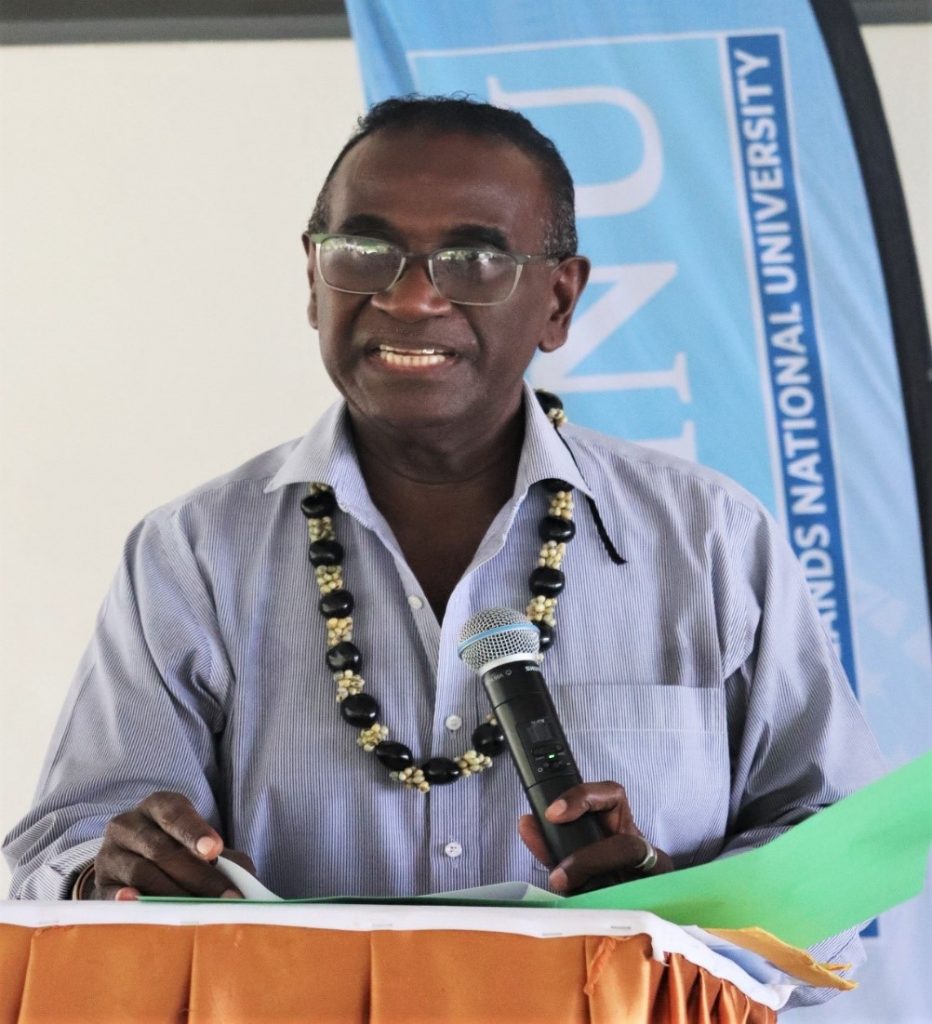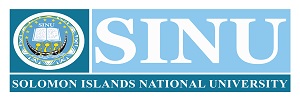𝐏𝐫𝐞𝐬𝐬 𝐑𝐞𝐥𝐞𝐚𝐬𝐞
𝟐𝟎 𝐅𝐞𝐛𝐫𝐮𝐚𝐫𝐲 𝟐𝟎𝟐𝟓

In a compelling keynote address at the Pacific Islands Political Studies Association (PIPSA) conference in Wellington, New Zealand today, the Vice Chancellor of Solomon Islands National University (SINU), Professor Transform Aqorau called on Pacific leaders, scholars, and policymakers to embrace strategic and adaptive leadership in navigating the complex challenges facing the region.
Speaking under the theme “Navigating the Currents of Change”, the Vice Chancellor emphasised that the Pacific is at a critical juncture, shaped by geopolitical shifts, climate change, economic vulnerabilities, and the evolving architecture of regionalism. He urged for a renewed vision that balances Pacific agency with pragmatism, reinforcing the need for innovation, resilience, and collective action.
“The currents of change are strong, and Pacific nations must be deliberate in charting their course. We can no longer afford to be passive observers but must actively shape our future through strategic leadership, deeper regional collaboration, and investment in education and human capital,” he stated.
The Vice Chancellor highlighted the increasing competition for influence in the Pacific, particularly among major powers. He underscored the importance of maintaining Pacific agency and self-determination, warning against external pressures that could fragment regional unity.
Addressing the changing dynamics of Pacific regionalism, he reflected on the Pacific Islands Forum’s (PIF) evolving role and the imperative for a more inclusive and responsive regional architecture. He called for Pacific nations to proactively shape the region’s governance structures to better serve their collective interests.
Asserting that climate change remains the most pressing existential threat, the Vice Chancellor urged Pacific leaders to move beyond rhetoric and push for stronger global commitments to climate finance, adaptation, and mitigation strategies. He also highlighted the economic vulnerabilities of Pacific economies, advocating for greater diversification and sustainable development pathways.
A passionate advocate for education, the Vice Chancellor stressed that the region’s resilience and progress hinge on investment in higher education, research, and skills development. He positioned SINU as a key driver of national and regional development, committed to fostering critical thinkers and ethical leaders for the Pacific.
In a call to action, the Vice Chancellor urged Pacific leaders to embrace ethical, forward-thinking governance. He argued that leadership must be driven by a long-term vision that prioritises people, culture, and sovereignty over short-term political gains.
Concluding his address, the Vice Chancellor called for a shift in mindset, one that sees challenges not as insurmountable obstacles but as opportunities to redefine the Pacific’s trajectory.”This is a moment for bold decisions. The Pacific must take control of its destiny, strengthening our institutions, investing in our people, and shaping a future that reflects our values and aspirations. It is time to be the architects of our own narrative,” he affirmed.
The address resonated strongly with delegates at the conference, sparking discussions on the evolving political, economic, and strategic landscape of the Pacific.
END//////////

In a compelling keynote address at the Pacific Islands Political Studies Association (PIPSA) conference today, the Vice Chancellor of Solomon Islands National University (SINU), Professor Transform Aqorau called on Pacific leaders, scholars, and policymakers to embrace strategic and adaptive leadership in navigating the complex challenges facing the region.
Speaking under the theme “Navigating the Currents of Change”, the Vice Chancellor emphasised that the Pacific is at a critical juncture, shaped by geopolitical shifts, climate change, economic vulnerabilities, and the evolving architecture of regionalism. He urged for a renewed vision that balances Pacific agency with pragmatism, reinforcing the need for innovation, resilience, and collective action.
“The currents of change are strong, and Pacific nations must be deliberate in charting their course. We can no longer afford to be passive observers but must actively shape our future through strategic leadership, deeper regional collaboration, and investment in education and human capital,” he stated.
The Vice Chancellor highlighted the increasing competition for influence in the Pacific, particularly among major powers. He underscored the importance of maintaining Pacific agency and self-determination, warning against external pressures that could fragment regional unity.
Addressing the changing dynamics of Pacific regionalism, he reflected on the Pacific Islands Forum’s (PIF) evolving role and the imperative for a more inclusive and responsive regional architecture. He called for Pacific nations to proactively shape the region’s governance structures to better serve their collective interests.
Asserting that climate change remains the most pressing existential threat, the Vice Chancellor urged Pacific leaders to move beyond rhetoric and push for stronger global commitments to climate finance, adaptation, and mitigation strategies. He also highlighted the economic vulnerabilities of Pacific economies, advocating for greater diversification and sustainable development pathways.
A passionate advocate for education, the Vice Chancellor stressed that the region’s resilience and progress hinge on investment in higher education, research, and skills development. He positioned SINU as a key driver of national and regional development, committed to fostering critical thinkers and ethical leaders for the Pacific.
In a call to action, the Vice Chancellor urged Pacific leaders to embrace ethical, forward-thinking governance. He argued that leadership must be driven by a long-term vision that prioritises people, culture, and sovereignty over short-term political gains.
Concluding his address, the Vice Chancellor called for a shift in mindset, one that sees challenges not as insurmountable obstacles but as opportunities to redefine the Pacific’s trajectory.”This is a moment for bold decisions. The Pacific must take control of its destiny, strengthening our institutions, investing in our people, and shaping a future that reflects our values and aspirations. It is time to be the architects of our own narrative,” he affirmed.
The address resonated strongly with delegates at the conference, sparking discussions on the evolving political, economic, and strategic landscape of the Pacific.
END//////////
